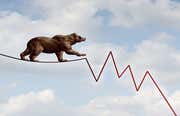 |
| David Dreman |
Born: 1936 (Winnipeg, Manitoba, Canada)
Key Positions: Rauscher Pierce Refsnes Securities Corp.
J&W Seligman
Value Line Investment Service
Dreman Value Management, LLC
Personal History:
The son of Joseph Dreman, a prominent investor in Winnipeg, David Dreman studied at the University of Manitoba, graduating in 1958. Upon graduation, Dreman worked as director of research for Rauscher Pierce Refsnes Securities Corp., then continued his career as senior investment officer with J&W Seligman, and later as senior editor of the Value Line Investment Service.
Dreman founded Dreman Value Management in 1977 on the basis of his developing contrarian investment style. The fund saw success throughout the 1990s, bolstered by Dreman’s popularity as a columnist for Forbes. In spite of a long track record of success, Dreman was forced out of the fund when it was purchased in 2009 by Deutsche Bank.
Investment Philosophy:
Dreman may have come to his iconic contrarian investment style as a result of his own bad bets early in his career. As a junior analyst in 1969, Dreman reportedly went along with popular investment opinion and bought into stocks of companies with questionable earnings as prices were climbing. He later indicated that he “invested in the stocks du jour and lost 75% of my net worth.” As a result, Dreman became acutely aware of the power of psychology in investment behavior and began to develop his philosophy as a contrarian.
Dreman explained his approach in an interview with Kiplinger’s Personal Finance in 2001: “I buy stocks when they are battered. I am strict with my discipline. I always buy stocks with low price-earnings ratios, low price-to-book value ratios and higher-than-average yield. Academic studies have shown that a strategy of buying out-of-favor stocks with low P/E, price-to-book and price-to-cash flow ratios outperforms the market pretty consistently over long periods of time."
Noteworthy Publications:
- "Contrarian Investment Strategy: The Psychology of Stock Market Success" by David Dreman (1980)
- "The New Contrarian Investment Strategy" by David Dreman (1982)
- "Contrarian Investment Strategies: The Next Generation” by David Dreman (1998)
- “Contrarian Investment Strategies: The Psychological Edge” by David Dreman (2012)
Quotes:
"Psychology is probably the most important factor in the market – and one that is least understood."
"I paraphrase Lord Rothschild: ‘The time to buy is when there's blood on the streets.'"
"One of the big problems with growth investing is that we can't estimate earnings very well. I really want to buy growth at value prices. I always look at trailing earnings when I judge stocks."
"If you have good stocks and you really know them, you'll make money if you're patient over three years or more."
The Greatest Investors: Philip Fisher
-
 Investing
InvestingContrarian investing: When There's Blood in the Streets
Baron Rothschild said "to buy when there's blood in the streets." Find out how contrarian investors find opportunities for profit in the worst market conditions. -
 Investing
InvestingFive ETFs for Contrarian Investors
Here are five ETF ideas that can be used by the contrarian investor. -
 Trading
TradingCan Perpetual Contrarians Profit As Traders?
Succeeding as a contrarian is all about knowing when to act on your opinion about the next turn in the market. -
 Investing
InvestingHow to Profit by Going Contrarian
Buying ETFs with high outflows can lead to superior returns. -
 Investing
InvestingDoes Active Value Investing Pay Off?
Learn about a well-researched paper that explores why active value investors underperform, and how value investing might be beneficial for your portfolio. -
 Investing
InvestingWhat Is The Value In Value Investing?
Value investing has its advantages, but it also has significant drawbacks. We look at the pros and cons. -
 Personal Finance
Personal FinanceWant to Trade Stocks in College? 5 Tips to Start
Investing while in college can be challenging. Here are five tips to help student investors make the most of their college years. -
 Investing
InvestingNot Buying the Trump Rally? Here Are BAML's Contrarian Plays
BAML's latest fund manager survey shows a crowded dollar trade, plenty of euro room and commodities too. -
 Investing
InvestingMutual Funds for a Low Growth Environment (JSVAX, MJFOX)
Learn about investing in mutual funds that employ strategies aimed at optimizing returns when slow U.S. economic growth is forecast.



